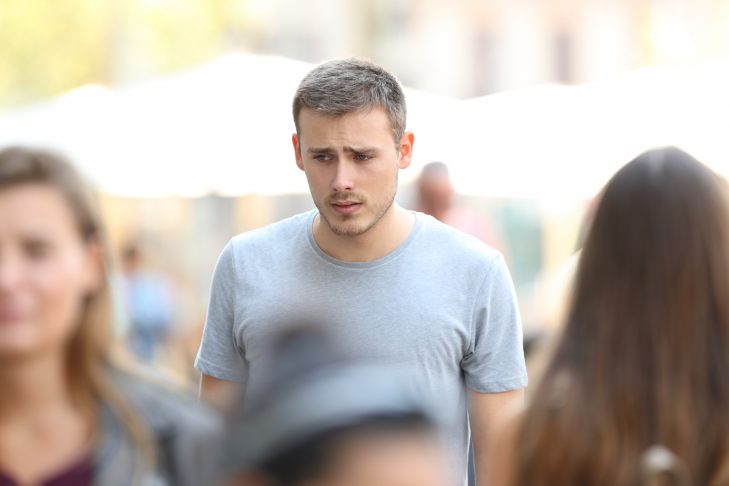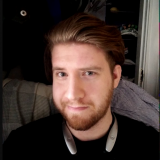This is going to be about my experience of mental health and Jewish community. It’s about connection and identity—who we are and what we owe to each other. Bear with me.
We’ve all had the experience of coming to a new community space and being, for lack of a better word, interrogated.
“What’s your name?”
“Where are you from?”
“Are you now or have you ever been a member of the Communist party?”
(For the record, we prefer Democratic Socialists of America these days.)
But it’s that next one, the inevitable, “So, what do you do?” that gets me. Because, if I’m being entirely honest, I don’t do anything. I have no career, no clear profession. I read a lot, I write a bit, I have a social life, and I try to keep up with my yoga. I don’t work anywhere. I’ve tried. Turns out that it’s hard to hold down a job when you average three panic attacks a shift. I’ve lived with a variety of diagnoses throughout my life, but for now let’s just call it depression.
Not having a profession means not having an identity, it feels like. To the world of Orthodox Judaism in which I grew up, what you do is who you are. It’s what it means to be an adult, to have a parnassah (livelihood). It’s a necessary step—or so it seems, and certainly any matchmaker would tell you—to finding a partner for marriage to starting a family and joining the community as a full member. With a few urban exceptions, often there is no clear role or space in Orthodox Jewish communities for the unmarried adult. Depression becomes an existence of isolation, of disconnect.
I’d like to paint another picture of connection, about the way we are affected by the world around us. One of my first severe depressive episodes took place in ninth grade; it was my first experience of yeshiva, having attended public schools until then. That yeshiva was in so many ways a toxic environment that I don’t have the spare word count to do it justice. What I can tell you is that the headmaster was an overbearing patriarchal presence who would send students home for disrespecting him. To my complete lack of surprise, he was later indicted by the FBI on criminal charges relating to the kidnapping and torture of husbands withholding ritual divorce. I imagine he saw himself as a hero.
As a young man in an environment in which such a man had power, there was nowhere to go but in. I withdrew from the world. I grew stunted like a sapling planted too close to a busy road.
Our environments matter. The vision of masculinity that allowed for such a man to hold power over an institution of education and Torah is the same that allows much of the Orthodox community to see little fault in the current president and his administration.
I have long ceased feeling surprise when I hear support for the current president at the Shabbos table. The rage and anguish, however, have only grown. I find I must remove myself from these meals before I allow myself to be, shall we say, overly honest. It is a sad fact that certain segments of the American Jewish community seem not to be distressed by a man who should by rights represent to them the opposite of every value in the Torah.
If they can be so blind to the suffering of others, how can I tell them what I do?
The world is interconnected. As above, so below. What is being litigated on the national stage is the same struggle our own communities face. How do we deal with toxic behavior among us? Do we tolerate it? Do we even acknowledge the harm it causes?
I’m not writing this post because I think I have the answer. I don’t believe there is any singular answer. I have, perhaps, suggestions that I hope may be helpful. Hillel’s words “do not unto others what is hateful to you” are a good start. “Love thy neighbor as thyself.”
How many times are we instructed: “Do not oppress the widow, the orphan, the stranger”? And yet, so many of our communities have become intolerant of difference. The stigma of mental illness and unemployment I know well; I’ve seen and heard what converts and Jews of color are often put through.
Our forefather, Abraham, whom we shall soon visit in our weekly readings, was an exemplar of kindness and generosity. One could argue that the reason we have this thing we call Judaism, the reason our people were chosen at all, is because an old man in the desert would invite strangers to his barbecues.
Where our tradition exhorts us to be open, we have become closed. We have come to fear the others we are commanded to welcome. It is a deep irony, I feel, that the communities who rail hardest against the dangers of assimilation are the ones to stray so far from the path of Abraham.
We can do better. We can be better. We need to.
This post has been contributed by a third party. The opinions, facts and any media content are presented solely by the author, and JewishBoston assumes no responsibility for them. Want to add your voice to the conversation? Publish your own post here. MORE



